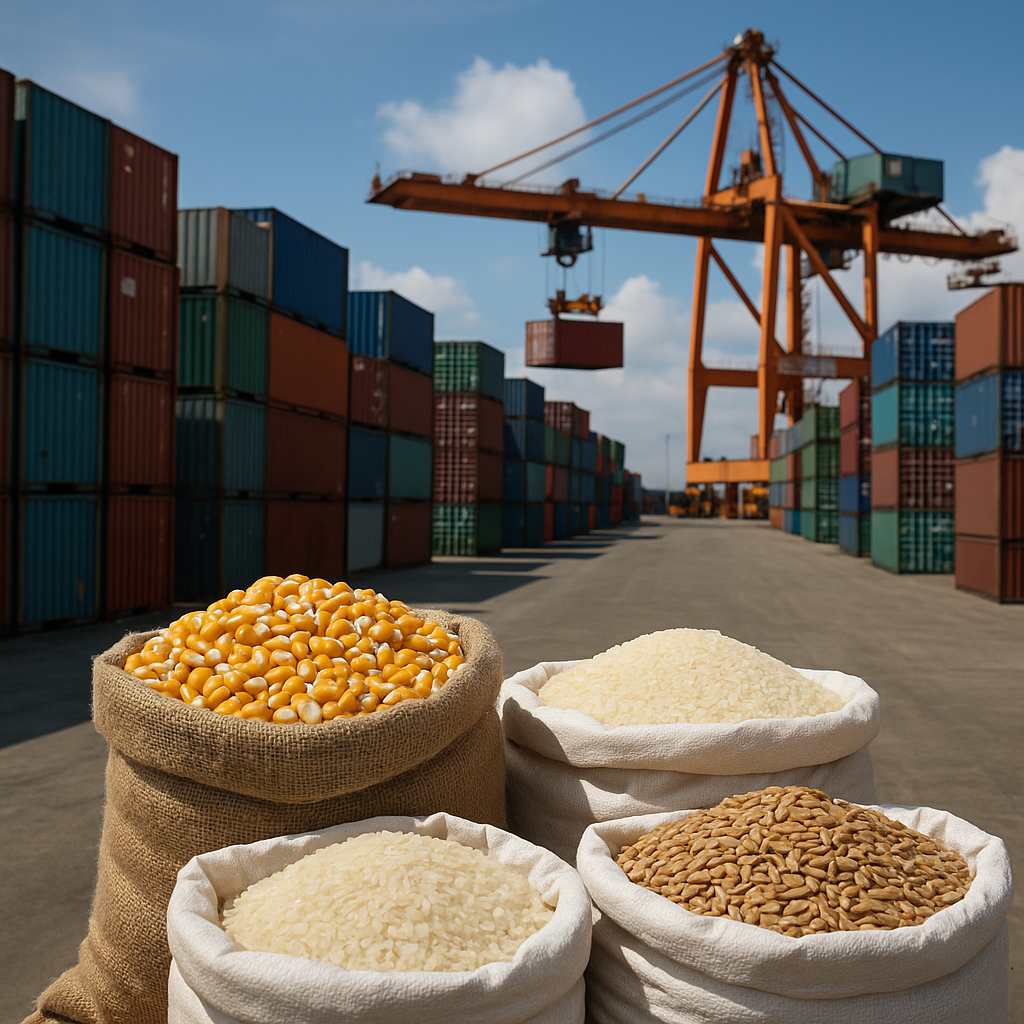Developed nations proved more resilient in food trade during COVID-19

The COVID-19 pandemic exposed deep vulnerabilities in the global food trade system, particularly in the exchange of key cereals, according to a new international study published in Agriculture. Developing nations bore the brunt of disruptions, reflecting heavy dependence on imports, limited infrastructure, and weaker policy buffers.
The research, “The Evolution of Global Food Trade Systems and Their Resilience in Response to COVID-19: Performance Across Nations”, provides the first comprehensive quantitative assessment of how the pandemic disrupted cereal trade flows and tested food security resilience worldwide.
How have global food trade networks evolved over two decades?
The study analyzed trade patterns in soybeans, wheat, rice, and maize, the world’s most critical cereals, between 2000 and 2021. Using complex network analysis, the researchers mapped shifts in the Global Trade Network for Four Cereals (GTN4).
Between 2000 and 2019, the GTN4 grew significantly, with more countries integrating into global supply chains, stronger trade linkages, and increased clustering that made trade more efficient. Soybean and rice trade volumes more than doubled in this period, while maize and wheat also expanded steadily. The networks became more interconnected, reflecting deeper globalization and dependence on international flows of staple grains.
However, the trajectory shifted sharply after 2019. The research found that accessibility and resilience within the network declined across most cereals. Soybeans, rice, and maize trade systems showed reduced efficiency and weaker linkages among countries. Rice trade networks even shrank in size, while maize networks contracted in both nodes and trade flows. Wheat was an exception, continuing to expand moderately, suggesting stronger structural resilience compared to the other cereals.
The findings underscore a structural divide: while globalization expanded food trade networks, it also created systemic risks. When global shocks occurred, the very interconnectedness that once supported growth turned into a vulnerability.
Was COVID-19 the turning point in trade resilience?
The researchers investigated whether the decline in trade network performance after 2019 was directly tied to the COVID-19 crisis. Their regression analysis, drawing on data from UN Comtrade and Johns Hopkins University’s COVID-19 database, confirmed that the pandemic had a statistically significant negative impact on cereal trade.
Globally, 44 to 69 percent of countries experienced disruptions in imports or exports of cereals between 2019 and 2021. Export activities were hit hardest: nearly two-thirds of countries saw reductions in cereal exports, compared to around half that experienced import declines. In some cases, countries recorded complete trade collapses, with exports or imports of specific cereals dropping to zero by 2021.
The study found that the pandemic had different effects on developed and developing nations. Developed countries demonstrated stronger resilience, with fewer severe declines in exports and imports. By contrast, developing countries faced sharp contractions in exports, affecting between 63 and 82 percent of nations, while import declines were also widespread.
The uneven impact highlights global inequalities in food security resilience. While wealthier economies absorbed shocks through stronger infrastructure, diversified suppliers, and policy buffers, developing nations lacked these safeguards and saw food systems strained under pandemic conditions. The evidence shows that global food security remains highly unequal, with poorer countries disproportionately vulnerable to external crises.
Which countries and crops dhowed the strongest and weakest resilience?
The study also tracked resilience at the national level, focusing on leading exporters and importers of cereals. Results revealed a mixed picture, with certain countries stabilizing the global food system while others exposed vulnerabilities.
On the export side, Germany’s wheat trade, Italy’s rice exports, and the United States’ maize shipments stood out for their resilience. These countries increased or maintained high export volumes despite high levels of pandemic severity. For instance, Germany and Italy managed to expand exports of wheat and rice even under conditions of widespread domestic disruption, while U.S. maize exports provided stability to global markets.
Soybean exports, by contrast, proved more fragile. China and Canada both saw significant declines, while Brazil remained a key global supplier. Among importers, Spain’s role in soybean trade was particularly notable. Despite experiencing a high epidemic severity index, Spain’s soybean imports rose by nearly 12 percent, reinforcing its critical position in stabilizing global demand.
In contrast, several major importers were less resilient. Japan’s wheat imports, Saudi Arabia’s rice purchases, and Vietnam’s maize imports fell well below global averages, highlighting weaknesses in their reliance on specific commodities during global crises. The study also noted that many outlier countries, those with sudden surges of more than 200 percent in trade activity, were developing nations with relatively mild pandemic severity, reflecting opportunistic market behavior rather than structural resilience.
The comparative performance of cereals also offered key insights. Soybeans and wheat were the most negatively affected globally, with strong declines linked to pandemic disruptions. Rice and maize, however, displayed greater adaptability, with certain countries offsetting losses through strong trade performances. This divergence suggests that future strategies must prioritize the cultivation and trade of more resilient crops while strengthening vulnerable trade systems.
- FIRST PUBLISHED IN:
- Devdiscourse










